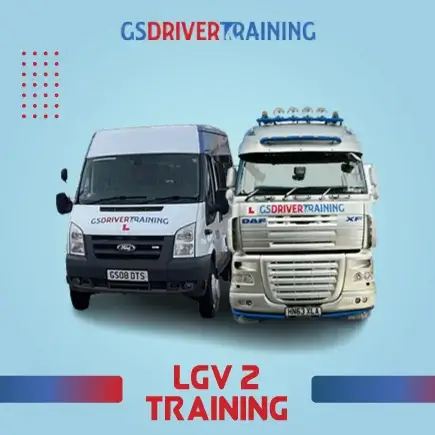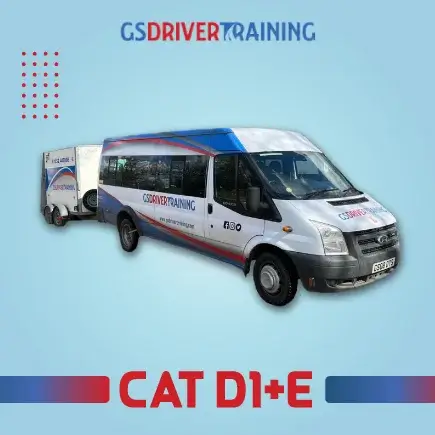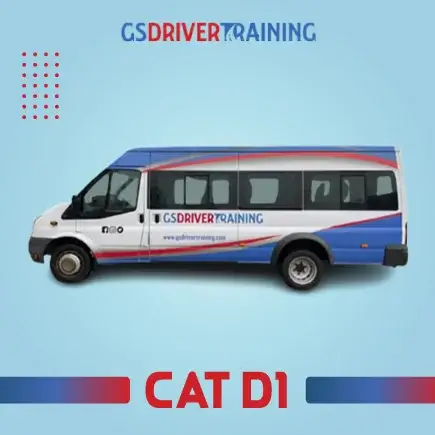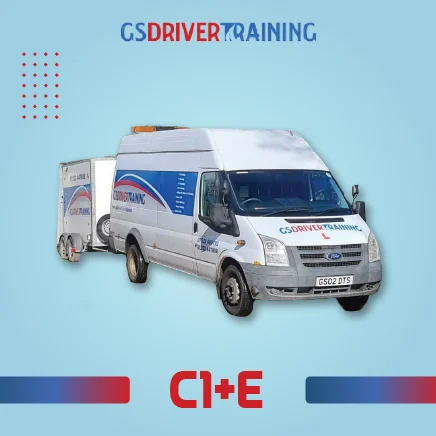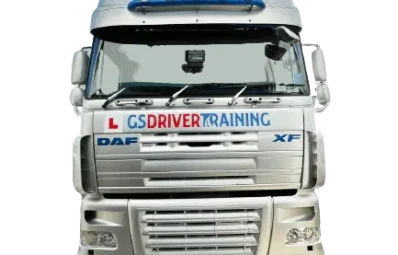
Get Behind the Wheel: Launch Your HGV Journey in Gloucestershire!
Are you ready to turn your ambition into action? The roads of Gloucestershire await, and now is the time to kickstart your HGV driving training journey. Whether you're eyeing local routes or dreaming of the open road, Gloucestershire provides the perfect backdrop to hone your skills. Here's your call to action:
Explore Your Options
Discover the diverse range of HGV courses offered in Gloucestershire. From Class C1 for smaller lorries to Class C for larger vehicles, find the program that aligns with your career aspirations. Check out reputable training providers and ensure they offer a comprehensive curriculum covering theory and hands-on experience.
Connect with Experts
Reach out to experienced HGV instructors in Gloucestershire who understand the unique challenges of the local road network. Their insights and guidance will be invaluable as you navigate your training. Ask questions, seek advice, and build a connection with professionals dedicated to your success.
Dive into Practical Training
Embrace hands-on experience on Gloucestershire's roads. Practical training sessions will prepare you for the realities of HGV driving, from manoeuvring through city traffic to navigating rural routes. Gain the confidence and skills needed to excel in any driving scenario.
Stay Informed and Certified
Beyond the licence, stay updated on industry regulations and advancements. Consider additional certifications that can set you apart in the competitive HGV landscape. Gloucestershire's training programs equip you with a licence and the knowledge to thrive in a dynamic industry.
Take the First Step
Don't let your HGV dreams stay in the rearview mirror. Take the first step today! Research training providers, contact instructors, and enrol in a program that aligns with your goals. Gloucestershire is not just a training ground; it's the launchpad for your exciting heavy goods vehicle operation career.
Ready to hit the road? Your HGV journey begins now in Gloucestershire!

Mastering C1 Driving in Gloucestershire: Your Comprehensive Guide
If you're aspiring to drive medium-sized lorries and want to obtain your Category C1 licence in Gloucestershire, you're on the right track to a versatile driving career. Here's a guide to help you navigate the process:
Understand the C1 Licence
The Category C1 licence is essential for driving between 3,500kg and 7,500kg, commonly used for transporting goods or passengers. In Gloucestershire, specialized training programs cater to this category, ensuring you acquire the necessary skills and knowledge.
Research Accredited Training Providers
Start by identifying reputable training providers in Gloucestershire that offer C1 courses. Look for accredited institutions with experienced instructors who understand the specific requirements for medium-sized lorries. Check reviews and testimonials to gauge the quality of their training.
Curriculum Overview
A comprehensive C1 training program covers both theoretical and practical aspects. Theoretical modules include understanding vehicle systems, safety regulations, and road awareness. Practical training involves hands-on experience behind the wheel, honing your driving skills under the guidance of seasoned instructors.
Practical Driving Experience
Take advantage of practical driving sessions in Gloucestershire to familiarize yourself with the unique road conditions. Negotiating city traffic, navigating rural roads, and handling challenging terrains will be part of your training, preparing you for diverse driving scenarios.
Theory Test Preparation
Prepare for the theory test, a crucial step in obtaining your C1 licence. Study materials provided by the training centre and consider additional resources to ensure a thorough understanding of relevant regulations and safety guidelines.
Stay Informed about Licensing Requirements
Stay updated on the specific licensing requirements in Gloucestershire. Your training provider should guide you through the application process, ensuring all paperwork is for a smooth progression toward obtaining your C1 licence.
Plan Your Training Schedule
Create a realistic training schedule that aligns with your commitments. Whether you're pursuing C1 training full-time or part-time, having a well-structured plan will contribute to a successful learning experience.
Embark on your C1 training journey in Gloucestershire with confidence, knowing you're gaining the skills to navigate the roads with precision and safety. This licence opens doors to various driving opportunities, making it a valuable asset in your professional journey.
How can I undergo LGV driver training to obtain my goods vehicle licence?
To undergo LGV driver training and obtain your goods vehicle licence, follow these steps:
- Choose a reputable training provider: Research a training provider with a good track record.
- Determine the licence category: Identify the specific LGV licence category you need based on the size and type of the vehicle you intend to drive (e.g., C1, C, C+E)
- Enrol in a comprehensive training program that covers theoretical and practical aspects of driving a suitable vehicle.
- Pass theory and practical tests: Complete the theory and practical assessments to demonstrate your knowledge and driving skills.
- Obtain your LGV licence: Once you've passed the required tests, you can apply for and obtain your LGV licence, allowing you to operate goods vehicles legally.
Navigating CPC Training in Gloucestershire: A Roadmap for Success
Embarking on CPC (Certificate of Professional Competence) training in Gloucestershire is a strategic move for anyone involved in professional driving. Here's a comprehensive guide to help you navigate the CPC training process:
Comprehend the Importance of CPC
The CPC is a legal requirement for professional bus, coach, and lorry drivers. It ensures that drivers continually update their skills, enhancing road safety and professionalism in the transport industry.
Identify Accredited Training Providers
Start your CPC training journey by researching accredited training providers in Gloucestershire. Look for institutions with a proven track record in delivering high-quality CPC courses. Consider reviews, recommendations, and the provider's reputation in the industry.
Choose the Right CPC Module
CPC training consists of the Driver CPC (for individuals driving professionally) and the Manager CPC (for those managing transport operations). Determine which CPC module aligns with your career goals and aspirations.
Curriculum Overview
CPC training covers various topics, including road safety, health and safety, and legislative updates. Ensure your training program in Gloucestershire provides a comprehensive curriculum, keeping you abreast of the latest industry standards.
Study Materials and Resources
Prepare for CPC exams by utilizing study materials provided by your training centre. Additionally, explore resources to deepen your understanding of relevant regulations and industry best practices.
Practice for CPC Exams
CPC training involves written exams, and thorough preparation is critical to success. Engage in practice exams to familiarize yourself with the format and time constraints, ensuring you're well-prepared for the assessments.
Stay Informed about Industry Changes
The transport industry is dynamic, with regulations evolving. Stay informed about any changes in legislation and industry practices. A good training provider in Gloucestershire will incorporate these updates into your CPC training.
Plan Your Training Schedule
Create a realistic training schedule that accommodates your existing commitments. Whether you opt for full-time or part-time CPC training, having a well-structured plan will contribute to a successful learning experience.
By undertaking CPC training in Gloucestershire, you're not just meeting legal requirements; you're investing in your professional development and ensuring that you remain a competent and informed driver in the ever-changing landscape of the transport industry.

D1 Training in Gloucestershire: Navigating the Road to Safe Passenger Transport
If you aspire to become a professional minibus or small bus driver in Gloucestershire, pursuing D1 training is crucial to achieving that goal. Here's a guide to help you navigate the process:
Understand the D1 Driving Licence
The D1 driving licence is required for individuals operating minibuses with a seating capacity of 9 to 16 passengers. This licence is essential for various roles, including school bus drivers, community transport drivers, and those involved in passenger transport for organizations.
Find Accredited Training Providers
Research and identify accredited training providers in Gloucestershire offering D1 training courses. Ensure that relevant authorities recognize the provider and have a reputation for high-quality training.
Check Eligibility Requirements
Before enrolling in D1 training, confirm that you meet the eligibility criteria. You must be at least 21 years old and have a standard car driving licence. Some providers may have additional requirements, so clarifying these before proceeding is essential.
Comprehensive Training Curriculum
A good D1 training program in Gloucestershire should cover theoretical and practical aspects of driving a minibus. The curriculum may include passenger safety, vehicle maintenance, and legal regulations specific to passenger transport.
Practical Driving Experience
D1 training involves practical driving sessions to ensure you can handle a minibus. These sessions may cover various driving conditions and scenarios, giving you the skills and confidence needed for real-world situations.
Theory and Hazard Perception Tests
Expect to undergo theory and hazard perception tests during the D1 training process. Study materials provided by the training centre and practice for these tests to enhance your chances of success.
Stay Informed about Regulations
Keep yourself updated on regulations related to passenger transport. A reputable training provider in Gloucestershire will include the latest legal requirements and best practices in their training program.
Plan Your Training Schedule
Consider both theory and practical sessions and create a realistic schedule for your D1 training—factor in time for self-study and practice to maximize your learning experience.
Completing D1 training in Gloucestershire opens up opportunities for passenger transport roles and ensures you contribute to safe and efficient transport services in your community.

HGV Training in Gloucestershire: A Pathway to Professional Driving
Embarking on HGV training in Gloucestershire is a significant step toward a rewarding career in professional driving. Here's a comprehensive guide to help you navigate the process:
Determine Your HGV Licence Category
Identify the specific category of HGV licence you need based on the type of vehicle you intend to drive. Categories include C1 for medium-sized lorries, C for larger vehicles, and C+E for articulated lorries.
Research Accredited Training Providers
Explore accredited HGV training providers in Gloucestershire. Ensure that relevant authorities recognize the training centre and have a reputation for delivering high-quality training. Reviews and recommendations from past trainees can be valuable in making an informed choice.
Check Eligibility Requirements
Before enrolling in HGV training courses, confirm that you meet the eligibility criteria. You must be at least 18 years old and have a standard car driving licence. Some categories may have additional requirements, such as medical examinations.
Understand the Training Curriculum
A reputable HGV training program in Gloucestershire should cover theoretical and practical aspects of driving a heavy goods vehicle. The curriculum may include vehicle safety, road regulations, and load-securing techniques.
Practical Driver Training
HGV training involves practical driving sessions to ensure proficiency in handling a large commercial vehicle. These sessions may cover various driving conditions, including urban and highway driving, to prepare you for real-world scenarios.
Theory and Hazard Perception Tests
Expect to undergo theory and hazard perception tests during the HGV training process. Study materials provided by the training centre and dedicate time for practice to enhance your performance in these assessments.
Comprehensive Preparation for the Practical Test
The practical driving test is a crucial component of HGV training. Practice regularly with the guidance of your instructor to master vehicle control, safety procedures, and manoeuvring skills.
Stay Informed about Industry Regulations
Keep yourself updated on industry regulations and best practices related to HGV driving. A reputable training provider in Gloucestershire will incorporate the latest legal requirements into their training program.
Plan Your Training Schedule
Consider both theory and practical sessions and create a realistic schedule for your HGV training. Allocate time for self-study and practice to maximize your understanding and skills.
Completing HGV training in Gloucestershire opens doors to diverse career opportunities in logistics and transportation and ensures that you contribute to road safety and efficient freight transport.

FAQs about HGV and LGV Training in Cirencester
1. What services do training providers in Cirencester offer?
Cirencester training services typically include HGV (Heavy Goods Vehicle) and LGV (Large Goods Vehicle) driver training. These programs equip individuals with the skills and knowledge to obtain the necessary licences for driving commercial vehicles.
2. What is the difference between LGV and HGV training?
LGV (Large Goods Vehicle) and HGV (Heavy Goods Vehicle) training are often used interchangeably. Generally, LGV refers to commercial vehicles over a certain weight, while HGV encompasses a broader category, including LGVs. Training programs cover various licence categories based on the size and type of the vehicle.
3. How do I obtain a goods vehicle licence in Cirencester?
You must undergo proper training and pass the required tests to obtain a goods vehicle licence in Cirencester. Choose a reputable training provider, enrol in a suitable training program, and complete theoretical and practical assessments.
4. Can I receive training for specific licence categories in Cirencester?
Yes, training providers in Cirencester typically offer programs for specific licence categories, such as C1 for medium-sized lorries, C for larger vehicles, and C+E for articulated lorries. Choose the category that aligns with your intended driving responsibilities.
5. Is driver training available for individuals in Gloucester as well?
Driver training services are often available in Cirencester and nearby areas like Gloucester. Consider exploring training providers in the broader region to find the program that best suits your needs.
6. What are the prerequisites for HGV driver training in Gloucestershire?
Prerequisites for HGV driver training may include:
- Holding a standard car driving licence.
- Being at least 18 years old.
- Meeting specific health and fitness criteria.
Check with your chosen training provider in Cirencester for detailed eligibility requirements.
7. How long does it take to complete HGV or LGV training in Cirencester?
HGV or LGV training duration in Cirencester can vary based on the chosen licence category and individual progress. Typically, it takes several weeks to complete both theoretical and practical components of the training.
8. Are there specific training programs for goods vehicle drivers in Gloucestershire?
Training programs in Gloucestershire cater to goods vehicle drivers, covering essential skills, safety regulations, and driving techniques. Research and choose a program that aligns with your career goals and the type of vehicle you intend to drive.
9. What is a goods vehicle licence, and why do I need it?
A goods vehicle licence is required for individuals who intend to operate commercial vehicles for transporting goods. This licence, often called an LGV (Large Goods Vehicle), is essential for driving vehicles above a specific weight limit. This licence ensures drivers are trained and qualified to safely handle larger, heavier vehicles.
10. What is the difference between an LGV driver and an HGV driver?
The terms LGV (Large Goods Vehicle) and HGV (Heavy Goods Vehicle) are often used interchangeably, and both refer to commercial vehicles used for transporting goods. In practical terms, there is no significant difference between an LGV driver and an HGV driver. Both require specific training and licensing to operate commercial vehicles.
Also Read: HGV Training in Berkshire


